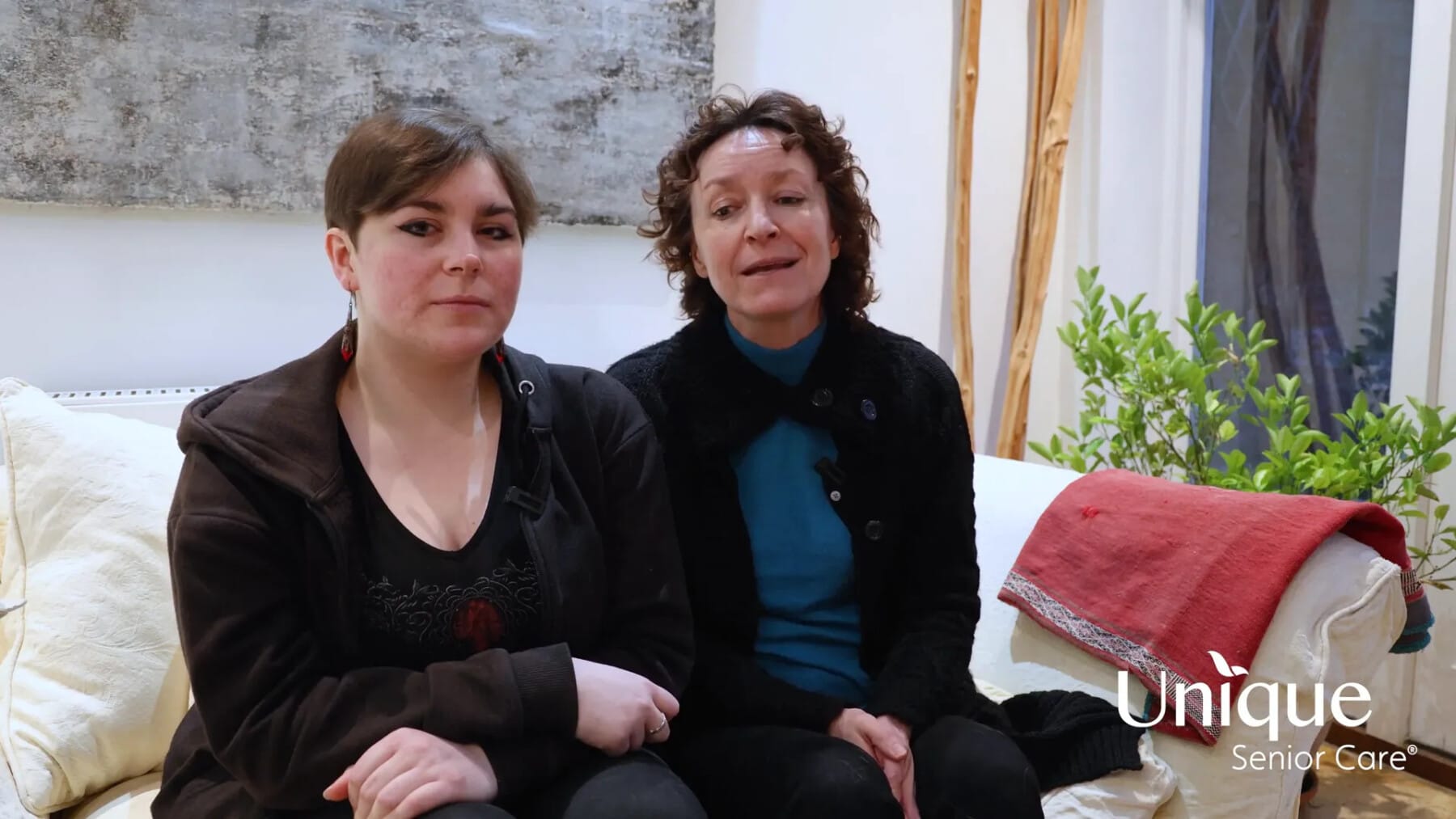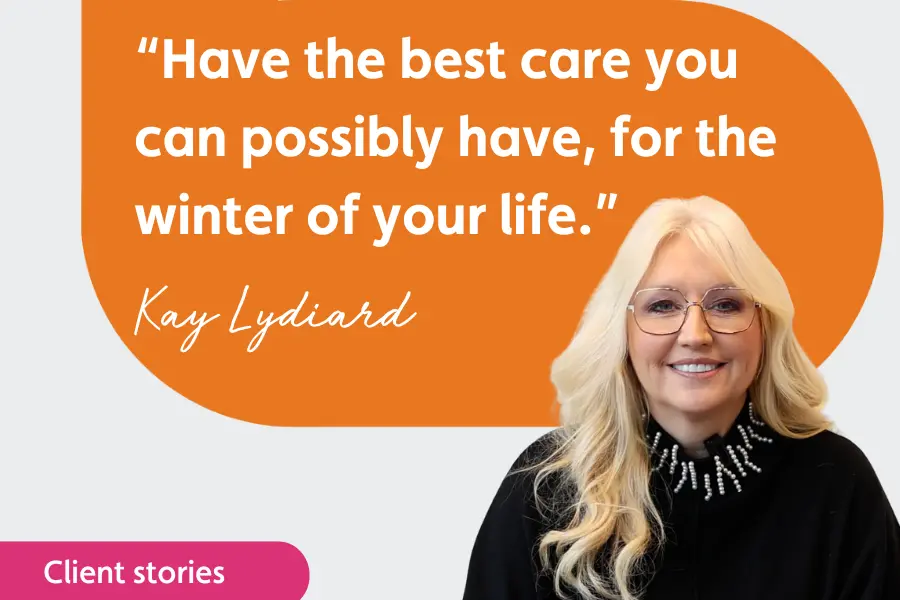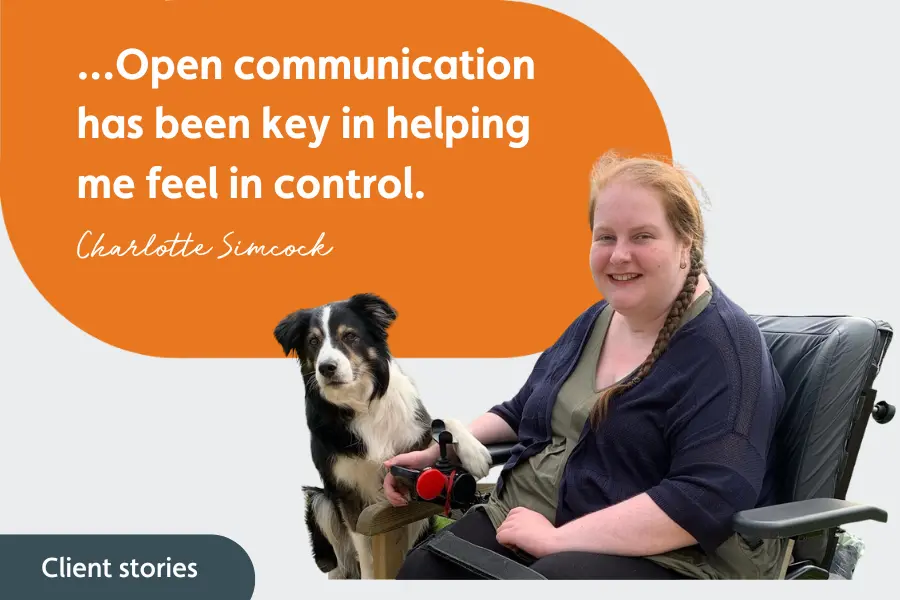When Jo Elliott’s daughter, Angharad, was diagnosed with severe epilepsy as a teenager, life changed in ways they could never have imagined. From managing seizures to overcoming a life-changing accident, their journey has been one of resilience, determination, and the incredible impact of the right support. With the help of dedicated Caregivers, Angharad has regained her independence, rediscovered joy in everyday life, and built meaningful relationships along the way.
A Life Turned Upside Down
Until the age of fourteen, Angharad was like any other teenager. But when she suddenly developed severe epilepsy, everything changed. Seizures became part of daily life, and Jo, her mum, found herself navigating an exhausting and often overwhelming world of treatments, medications, and specialist appointments.
As a parent, Jo did everything she could to help Angharad regain control, but epilepsy didn’t just affect her daughter’s health—it reshaped their entire family’s life.


A Devastating Accident
Things took an even more tragic turn while they were on holiday in Cornwall. During a cliffside walk, Angharad had a seizure and fell. The accident left her with severe injuries, leading to nine and a half months in hospital and multiple surgeries.
For Jo, watching her daughter go through so much pain was heartbreaking. But in the midst of everything, something unexpected happened—after the accident, Angharad’s epilepsy improved. However, she now faced a long and challenging road to recovery in other ways.
Rebuilding Independence
With significant physical challenges to overcome, Angharad’s focus shifted to rehabilitation. Step by step, she worked to regain her strength. There were moments of frustration and setbacks, but there were also small victories—each one a reminder of her resilience.
For Jo, ensuring Angharad had the right support became the top priority. She fought hard to get funding for Caregivers, knowing that the right people could make all the difference—not just in providing practical help, but in giving Angharad a sense of companionship and purpose.
The Difference the Right Care Makes
Finding the right Caregivers wasn’t easy. Jo wanted more than just someone to assist with daily tasks—she wanted people who genuinely cared. People who would connect with Angharad, understand her needs, and help her feel like herself again.
Thankfully, she found them.
Angharad’s Caregivers became more than just helpers; they became friends. They brought laughter, conversation, and normality back into her life. Living in a small village meant social opportunities were limited, but having Caregivers who took the time to truly engage with her made a world of difference.
“I don’t think people realise how important companionship is,” Jo says. “It’s not just about care—it’s about feeling part of something, having someone to talk to, to share moments with.”

What to Look for in a Caregiver
Jo’s experience highlights something many families face—the challenge of finding the right support. If you’re in a similar position, here are a few things to consider when looking for a Caregiver:
- More than experience—look for connection. Practical skills are important, but so is personality. A great Caregiver isn’t just someone who knows what to do, but someone who takes the time to build a bond.
- Think about interests. Finding a Caregiver who shares or encourages hobbies can make everyday life more engaging and enjoyable.
- Ask the right questions. When interviewing Caregivers, go beyond qualifications. Ask about their approach, their motivations, and how they connect with the people they care for.
- Trust your instincts. The right fit isn’t just about ticking boxes—it’s about feeling comfortable and reassured.
Safety and Quality of Life
For families, knowing a loved one is in safe hands brings peace of mind. But care isn’t just about safety—it’s about living well.
A good Caregiver will do more than just help with daily tasks. They’ll encourage independence, create meaningful moments, and ensure the person they support feels valued. Whether it’s engaging in a favourite activity, going for a walk, or simply having a good conversation, these moments matter.
If you’re thinking about care for a loved one, consider what will help them not just manage, but truly thrive.

Finding Peace of Mind
Jo and Angharad’s story is a reminder of how much the right care can change lives. It’s not just about practical help—it’s about dignity, companionship, and a sense of normality.
For families facing similar journeys, the road isn’t always easy, but support is out there. And when you find the right Caregivers, they become more than just a service—they become part of the family.
If you’re considering care options, take the time to find the right people. Because, as Jo and Angharad have shown, the right support can truly make all the difference.
Discover More Support & Information For Your Care Journey
Visit our Learning Centre for expert articles, helpful videos, in-depth guides, and answers to common questions – helping you make informed care decisions with confidence.
With a background spanning over two decades in the field of marketing, I have had the privilege of working across diverse industries, ranging from insurance to sports, technology, and health & well-being.
While my previous experience did not directly involve care services, I have acquired a deep understanding of the sector’s needs and challenges through my wife. For the past eight years, she has been dedicated to providing the highest level of support to her clients as a compassionate caregiver.
Witnessing the profound impact that committed caregivers have on their clients’ lives when the opportunity arose to join the esteemed team at Unique Senior Care, it was an easy decision for me to make.
During my free time, you may find me leisurely strolling across fields with a metal detector in hand, eagerly exploring the possibility of unearthing hidden treasures. Alternatively, I love nothing better than making the most of our National Trust membership and cherishing precious moments spent with my family.
I am genuinely thrilled to be a part of the Unique Senior Care team, where I can bring my expertise to the table and share a sincere passion for enhancing the lives of those we serve.


